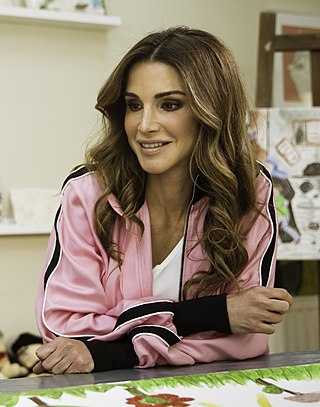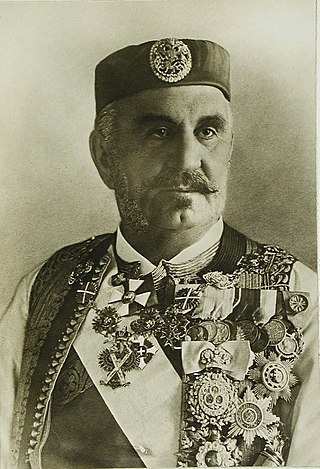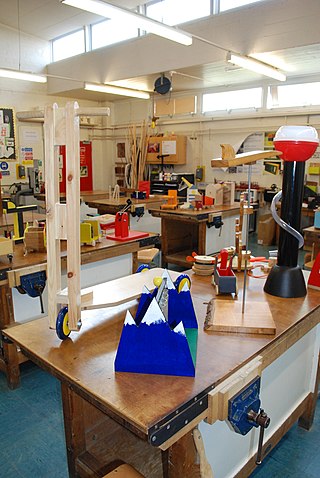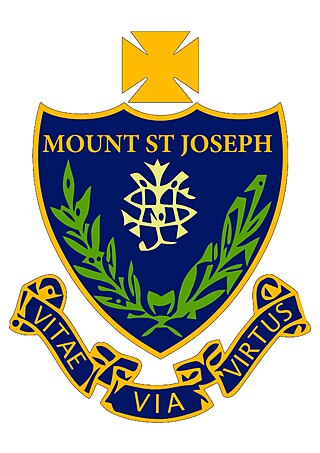
The General Certificate of Secondary Education (GCSE) is an academic qualification in a range of subjects taken in England, Wales and Northern Ireland, having been introduced in September 1986 and its first exams taken in 1988. State schools in Scotland use the Scottish Qualifications Certificate instead. However, private schools in Scotland often choose to follow the English GCSE system.

Rania Al Abdullah is Queen of Jordan, as the wife of King Abdullah II.

The Council for the Curriculum, Examinations & Assessment (CCEA) is a non-departmental public body (NDPB) of the Department of Education. Its function and purpose is described in Part VIII of the Education (NI) Order 1998.

Nikola I Petrović-Njegoš was the last monarch of Montenegro from 1860 to 1918, reigning as prince from 1860 to 1910 and as the country's first and only king from 1910 to 1918. His grandsons were kings Alexander I of Yugoslavia and Umberto II of Italy among others.

The Order of the Dannebrog is a Danish order of chivalry instituted in 1671 by Christian V. Until 1808, membership in the Order was limited to fifty members of noble or royal rank, who formed a single class known as White Knights to distinguish them from the Blue Knights who were members of the Order of the Elephant. In 1808, the Order was reformed and divided into four classes. The statute of the Order was amended in 1951 by a Royal Ordinance so that both men and women could be members of the Order. Today, the Order of the Dannebrog is a means of honouring and rewarding the faithful servants of the modern Danish state for meritorious civil or military service, for a particular contribution to the arts, sciences or business life, or for working for Danish interests.

The International General Certificate of Secondary Education (IGCSE) is an English language based secondary qualification similar to the GCSE and is recognised in the United Kingdom as being equivalent to the GCSE for the purposes of recognising prior attainment. It was developed by Cambridge Assessment International Education. The examination boards Edexcel, Learning Resource Network (LRN), and Oxford AQA also offer their own versions of International GCSEs. Students normally begin studying the syllabus at the beginning of Year 10 and take the test at the end of Year 11. However, in some international schools, students can begin studying the syllabus at the beginning of Year 9 and take the test at the end of Year 10.

António José de Almeida, GCTE, GCA, GCC, GCSE, was a Portuguese politician who served as the sixth president of Portugal from 1919 to 1923.

Design and Technology (D&T) is a school subject taught in England to pupils in primary and secondary schools. It first appeared as a titled subject in the first National Curriculum for England in 1990. It has undergone several reviews when the whole National Curriculum has been reviewed, the most recent in 2013.
Key Stage 4 (KS4) is the legal term for the two years of school education which incorporate GCSEs, and other examinations, in maintained schools in England normally known as Year 10 and Year 11, when pupils are aged between 14 and 16 by August 31.

BBC Bitesize, also abbreviated to Bitesize, is the BBC's free online study support resource for school-age pupils in the United Kingdom. It is designed to aid pupils in both schoolwork and, for older pupils, exams.

Prince Vanna Vaidhayakara, known in the West as Wan Waithayakon (1891–1976), was a Thai royal prince and diplomat. He was President of the Eleventh Session of the United Nations General Assembly (1956–1957), while serving as Thailand's Permanent Representative to the United Nations. He was a grandson of King Mongkut.
St Patrick's Grammar School, Armagh, is a Roman Catholic boys' non-selective voluntary grammar school in the city of Armagh, Northern Ireland. The present-day school was officially opened on Thursday, 27 October, 1988, by the late Cardinal Tomás Ó Fiaich, the then Chairman of the Board of Governors, and was the result of the amalgamation of two of Northern Ireland's oldest grammar schools, Christian Brothers' Grammar School and St. Patrick's College, both of which had traditions stretching back as far as the 1830s.

Shenfield High School is a coeducational 11-18 secondary school located in Shenfield, Essex, England. It has over 1200 students on roll, including 300 in the sixth form. It opened in 1962, celebrating its 50th anniversary in 2012. It converted to academy status in February 2012.

The Henrietta Barnett School is a grammar school with academy status for girls, in Hampstead Garden Suburb in London. The Good Schools Guide called the school 'One of the best academic state schools in the country, providing a gentle, inspiring education in a wonderful setting for very clever girls', and the school consistently ranks amongst the top state schools in educational league tables. The school was named among the 'magnificent seven' in 2005, following three mentions as being 'outstanding' in Ofsted's inspections. Following its latest Ofsted inspection in May 2022, the school was recategorised as "Good".

Chetwynde School is a Free school in Barrow-in-Furness, Cumbria, England. It includes a kindergarten, primary school and secondary school. It is a member of South Cumbria Multi-Academy Trust.

Thomas Clarkson Academy is a mixed secondary school and sixth form located in Wisbech, Cambridgeshire, England. A new school building has been constructed that was designed by Ken Shuttleworth and Make Architects.

Alamsyah Ratu Perwiranegara was an Indonesian retired military general and politician who served as State Secretary Minister, Coordinating Minister of People's Welfare, Minister of Religious Affairs, and Ambassador of Indonesia to the Netherlands.
The National Curriculum of Northern Ireland identifies the minimum requirements of skills for each subject and the activities to develop and applied the skills.

Mount St Joseph School is a coeducational Roman Catholic secondary school located in Farnworth, Greater Manchester, England. Currently rated "Requires Improvement" as of December 2023.
The Order of the Star of Ethiopia was established as an order of knighthood of the Ethiopian Empire, founded by the Negus of Shewa and later Emperor of Ethiopia Menelik II in 1884–1885. It is currently awarded as a house order by the Crown Council of Ethiopia.















